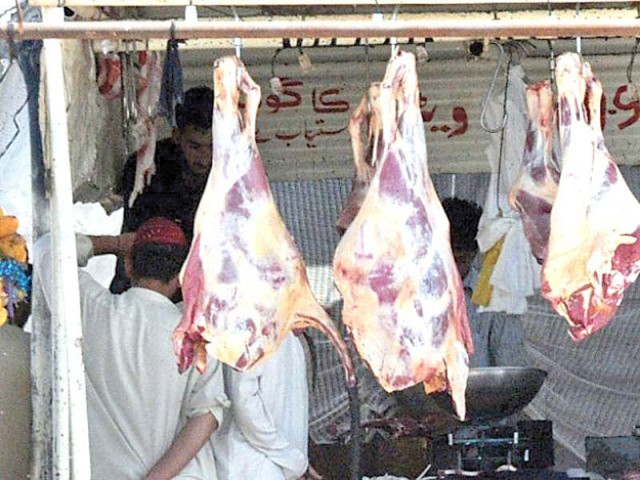The recent crackdown and filling the gap
Probe part of a larger strategic thinking to create awareness of quality and hygiene

All roadside restaurants in big cities and small towns and villages have for decades been serving food in extremely unhygienic conditions. PHOTO: FILE
One may argue that the whole nation – except few families in a country of nearly 200 million people – has none or limited concept of hygiene. And because “everyone is naked in this bathroom” (as they say in Urdu), the story remained untold.
All roadside restaurants in big cities and small towns and villages have for decades been serving food in extremely unhygienic conditions.

The toilets even in the so-called five star hotels smell like what they are used for. One doesn’t have to travel to a too distant place to observe heaps of cow and buffalo dung.
Read: PFA seals six food outlets
Such Himalayas of dung are found on both sides of GT Road between Lahore and Islamabad. It is hard to believe that prime ministers, presidents, ministers and bureaucrats of Pakistan have never noticed them. They certainly must have, but never thought of doing something about it. Similarly, almost everyone must have eaten unhygienic food during a stage of life (e.g., while being at a student hostel) but never bothered to even get it replaced even after finding a human hair or something similar in the dish, because the replacement would come from the same container any way.
Food business is big in any country but more so in a country of the size of Pakistan. There are certain items that are bought and consumed daily by every family in the country, eg milk. While it is not necessarily the case that everyone drinks milk on a daily basis but it is certainly true that at least one member of the household (e.g., an infant) will need milk daily.
No wonder then why some leading political and business families are engaged in an implicit, and in some cases explicit, war of competition in the business of milk production and distribution.
Pakistan is the fourth largest producer of milk in the world, with 36.2 million tons of annual production. All of this is consumed domestically, implying a daily per capita consumption of half a litre. There are an estimated 40 million people (or 8 million households) involved in the dairy business in the country, which stands at 20% of the total national population and an even higher percentage of the labour force.
The food business is so lucrative that no political or business family can ignore it. It may very well be the case that the current and on-going crackdown on food businesses in Pakistan is part of a larger strategic thinking of some of the ruling families to create awareness around quality and hygiene in the food business. Given the lucrativeness of the market, there may very well be the case for launching a new local food brand on the back of this campaign.

Albaik in Saudi Arabia is an interesting example of a local brand. Despite facing growing competition from the likes of McDonalds, KFC and Burger King, Albaik remains the most popular fast food brand in Saudi Arabia. In Pakistan, there are some local brands like Chicken Dabu (in Gujranwala), Savours (in Rawalpindi and Islamabad) and Gourmet on a national level, which are making huge profits. All these businesses have faced the wrath of public following the crackdown by Punjab Food Authority.
Read: Hardee’s, KFC fined over unhygienic kitchens
Despite the limited success of some of the local brands, there remains a need for a bigger and more popular local food brand in the country. There is an estimated Rs73 billion ($700 million) annual market for such a business. The figure is based on Rs10 per capital daily consumption by the targeted clientele (10% of the national population). The time for launching such a brand has perhaps come. It is only a matter of time when one may witness such a launch. It will be interesting to see which political family is behind such a food business.
The writer is an economist and PhD from Cambridge University
Published in The Express Tribune, September 21st, 2015.
Like Business on Facebook, follow @TribuneBiz on Twitter to stay informed and join in the conversation.



















COMMENTS
Comments are moderated and generally will be posted if they are on-topic and not abusive.
For more information, please see our Comments FAQ